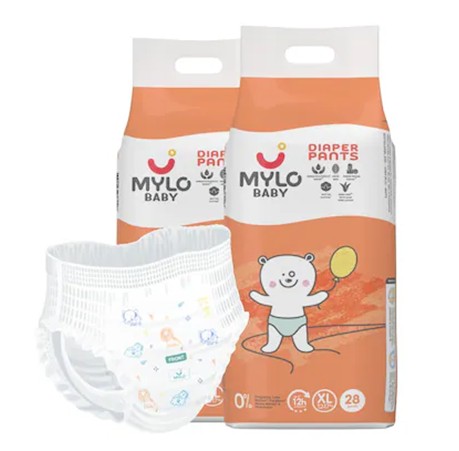
Understanding the complexities of IVF is never easy. With so much information around it, you may become overwhelmed. After all, it can be stressful when you’re trying for a baby and failing.
India has a population of 27.5 million infertile people, and if you’re one of them, you’re probably looking for a route to overcome it. While you may struggle to conceive naturally, IVF can come off as an efficient solution to start your journey towards parenthood.
Are you ready to take your first step towards parenthood and starting a family? Well, in that case, start your IVF journey with Aastha Fertility. Having helped numerous couples across Jaipur, Aastha Fertility can help you achieve your goal of parenthood.
Read the article below to understand the comprehensive stage of the IVF cycle at Aastha Fertility to achieve parenthood.
Preparing for IVF
You need to understand your current fertility health if you want to have a successful IVF cycle and a healthy pregnancy. It’s for this reason that most doctors consider fertility testing before conducting the procedure.
During the IVF preparation stage, you will be tested for thyroid, potential genetic issues and even blood tests. Depending on the result, the doctors may prescribe medicines to improve your health and change your lifestyle to make conception easier.
Before starting with the IVF procedure, your doctor will conduct the following tests:
- Blood test
- Genetic carrier screening
- Transvaginal ultrasound to check ovarian reserve
- Semen analysis and blood test for males
- Uterine cavity and fallopian tube evaluation
Stages of Starting IVF
After the diagnosis is done, your IVF cycle begins. It is important to note that you’ll be experiencing many mixed emotions, which is why you will have to be very mindful and communicate your concerns. Here are the different stages of IVF:
Oral Medications
Before beginning the IVF cycle, the candidate must be on oral medications for approximately 10-14 days.
Studies have shown that oral medications can help improve ovarian health for a successful IVF cycle. Along with the oral medicines, it is also important to consume healthy foods and maintain a healthy lifestyle.
Ovarian Stimulation
After the oral contraceptives, the fertility medicines will be injected into the body for approx 9-11 days. These medicines contain hormones that help in the development and maturing of follicles.
The size and number of follicles have a huge role in determining the retrieval of mature eggs. During this period, you may have to visit the fertility clinic regularly for transvaginal ultrasound and blood tests.
Egg Retrieval
Egg retrieval is a one-day procedure where the eggs are extracted from the ovarian follicles and sent to an IVF lab for fertilisation.
Most of the IVF labs monitor the growth and fertilisation of the eggs. Every embryologist takes special care of the embryo’s growth and monitors it for division. They monitor the process of transition of the egg from the zygote to the blastocyst stage.
Embryo Transfer
Five days after starting the process, the embryo will be transferred to the uterus. This is referred to as a fresh transfer. However, if you want the embryo to be transferred later, you must opt for cryopreservation.
The embryo transfer process is usually done within a single day in 20-30 minutes. It is a painless process and does not need anaesthesia.
Analyse the Outcome: Positive or Negative
After the embryo is transferred, the positive outcome will be when you miss your period and become pregnant. In the negative case, your period will arrive.
If your outcome is positive and you’re pregnant, you can visit your doctor for a scan. However, if the outcome is negative, you can consult your doctor and understand when to prepare for the next cycle.
Average IVF Cycle Timeline
| Cycle Day | Day | What’s happening |
| Start stimulation medications | Day 1 or 2 | Start injections |
| Continue stimulation medications | Days 3-14 | Continue injections & monitoring |
| Take the trigger shot | Day ~14 | Trigger ovulation |
| Egg retrieval | Day 16 | Egg retrieval |
| Day 1 of embryo development | Day 17 | Embryo development begins |
| Day 3 of embryo development | Day 18 | Embryo development update |
| Day 5 of embryo development | Day 19 | Blastocyst development & transfer/freezing |
| Day 6 of embryo development | Day 20 | Blastocyst biopsy/freezing & transfer |
| 2-week wait | Week 4-5 | Pregnancy test |
| PGT results & FET scheduling | Week 6 | FET scheduling |
When should you try again if the IVF cycle fails?
Not all IVF cycles will be successful in the first attempt. Various patients claimed to have achieved success in IVF after a few tries. Your IVF physician is the best one to help you understand when to try again if your first cycle isn’t successful. After the failure of the first cycle, your periods will soon start. It is advisable to try for IVF cycle again after the following period’s date.
Final Thoughts
IVF is one of the most successful and helpful procedures for infertile couples to start their journey towards parenthood. Not only infertile couples, IVF can be an ideal solution for same-sex couples and single people. It is best to consult your doctor on what steps to take to ensure a successful IVF cycle. Thus, the professionals at Aastha Fertility can be of great help in Jaipur to take a step towards healthy pregnancy. If you want to know more about IVF, you can schedule a consultation with professional doctors at Aastha Fertility and move forward.
Write and Win: Participate in Creative writing Contest & International Essay Contest and win fabulous prizes.


